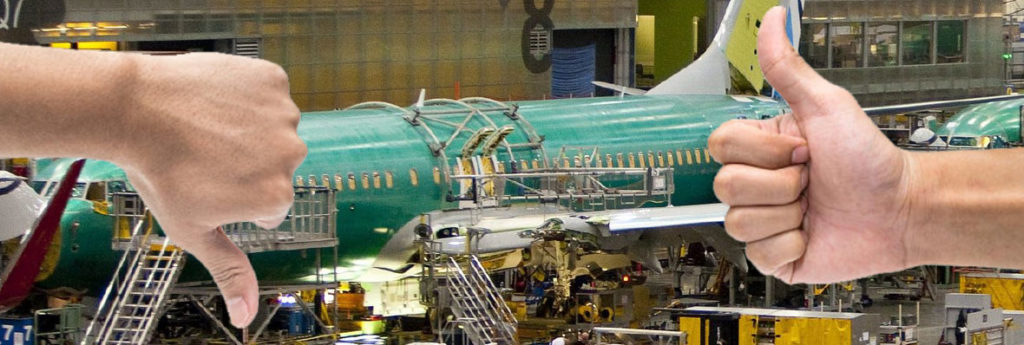A government committee reviewing how the Federal Aviation Administration certifies new passenger planes for flight has determined that the system is safe and effective but small changes need to be made. In a report released Thursday the committee found that the FAA’s system of delegating some inspections to aircraft manufacturers is effective and allows the US industry to thrive. But the findings conflict with legislators who are investigating the crashes.
However, last week Democratic leaders of the House Transportation Committee accused Boeing of deceiving regulators and said they will introduce legislation to strip the company of all or part of its authority to help approve its own aircraft as safe to fly.
Transportation Committee chairman Rep. Peter DeFazio, D-Ore., and Rep. Rick Larsen, D-Wash., were reacting to a batch of messages between Boeing employees that were released at the urging of lawmakers on Friday. The employees questioned the safety of the now-grounded Max, called the aircraft a “joke” and talked about how they concealed problems from regulators.
But the Special Committee appointed by Transportation Secretary Elaine Chao in April to review the FAA’s certification process after two deadly crashes involving Boeing’s 737 Max, wrote that the FAA certification process is “rigorous, robust and overseen by engineers, inspectors, test pilots and managers committed to the primacy of safety.” The committee found that it took five years for the FAA to certify the Max.
It recommended that the system of delegating inspections to manufacturers should continue, and the FAA and industry should work together to address concerns about “potential undue pressure” on company employees designated to do inspections as planes work through the approval process.
In its report, the committee pointed out that it was not doing an investigation of the Max approval process.
“The committee’s approach was collaborative, not investigatory,” the report said. “Its mandate was to collect and analyze information, not find fault.”
This may be the most frightening report ever. Chao’s committee noted that there were concerns about “undue pressure” on the employees designated to inspect and approve the process, but determined the system was safe and effective. Most telling of all is that the system “allows the US industry to thrive.”
Well, that really is the most important factor, isn’t it? Now go convince the families of the MAX 8 crashes.

